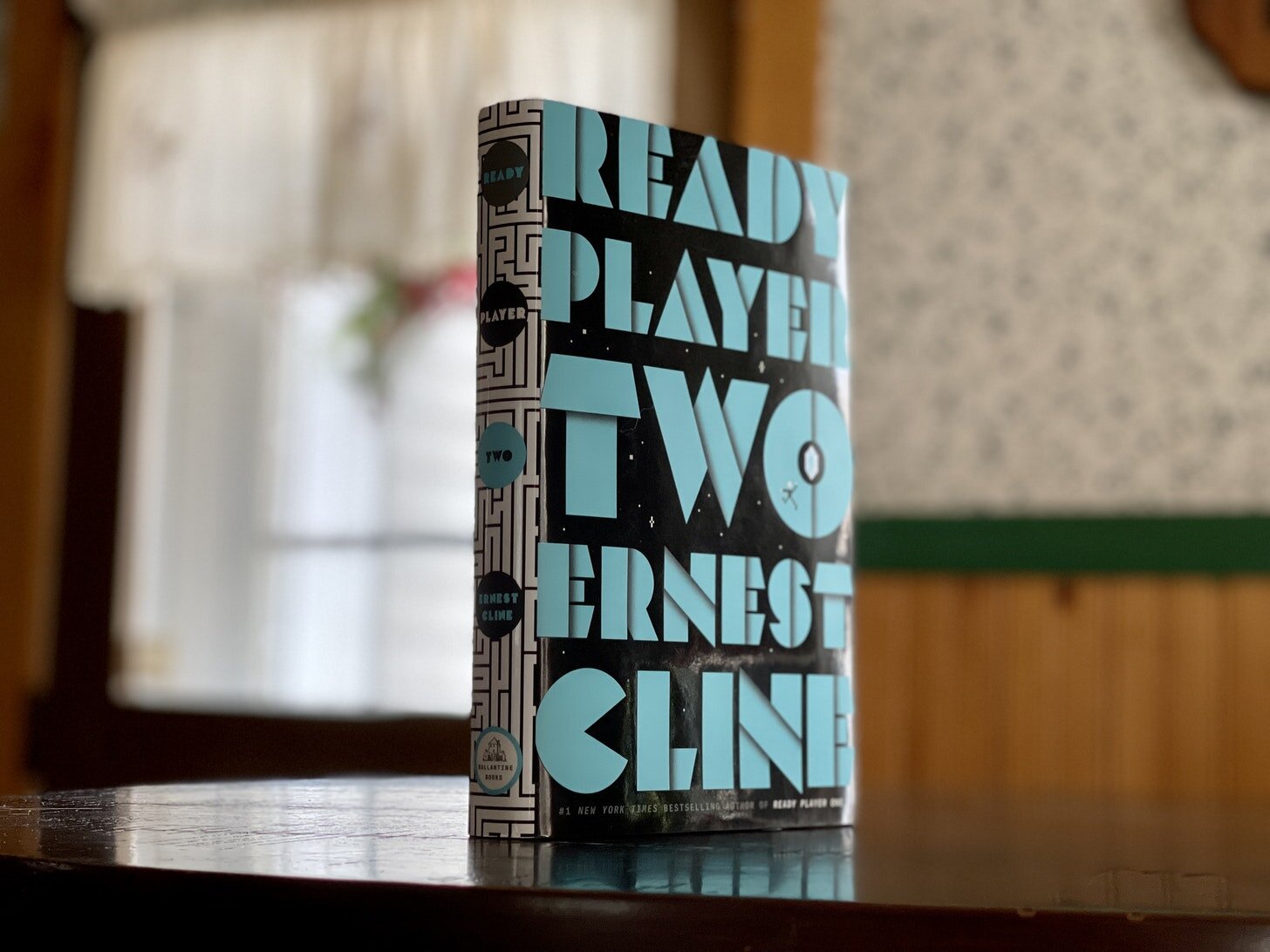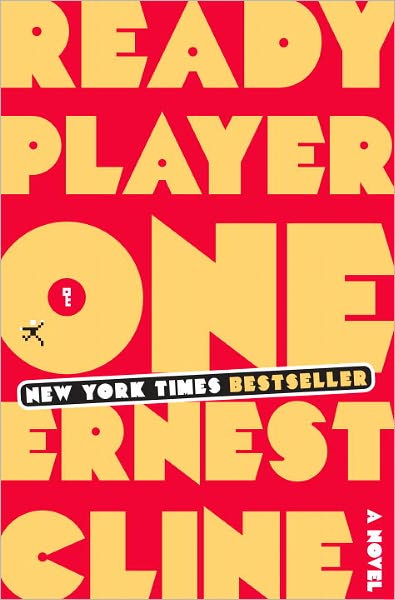Ready Player No
/Let’s get this right out of the way: Ernie Cline’s Ready Player Two is not a good book.
But that’s not really something that matters for a book like this, is it? I’ve always been somewhat of an apologist for Cline’s debut novel, Ready Player One. When it hit stores back in 2011, it came at at time when “geek culture” was in its mainstream ascendancy. Game of Thrones had just hit HBO earlier that spring, but the larger Avengers/Marvel Cinematic Universe hadn’t quite hit the fervor that surrounded it. Disney’s acquisition of Lucasfilm was still a year away. Nerd culture was already here — it had been for decades — but it was a moment where folks were beginning to realize that those things that they might have loved as a kid, be it video games, action figures, Dungeons & Dragons, 1980s science fiction movies, and so forth, was something that they could still love.
Ready Player One perfectly encapsulated that moment. It’s not a good book either — it’s just Cline listing off the things that he loved, but it was a book that someone could crack open and go “hey, I love those things too!” It was a referential book about references and easter eggs, the hidden codes that fellow nerds could use to find their own kind. It’s a fun, earnest story about being a nerd and loving certain things.
But while the book captures that scene or mindset, it’s not the complete picture of what “geek culture” really is. It’s just a fragment, the easiest, espousing the lowest-hanging fruit for what people think about when they think about what geeky things they enjoy.
But in the eight years since it came out, the various, collective communities that make up the SF/F world have faced a sort of reckoning, one that puts issues of diversity and inclusion right in the front and center of fan’s attention. We’ve seen people from various, marginalized backgrounds speak up and make space for themselves, forcing fandom to realize how unequal, problematic, and exclusionary the scene could be. Movements like GamerGate and Sad / Rabid Puppies showed that people will go to great and extreme lengths to protect their remembered history of the SF/F world.
Looking back, Ready Player One hasn’t held up well. It might be a celebration of nerdy pursuits, but it also reads as a set of requirements that might as well say “if you don’t like these things, you aren’t a real nerd.”
A bullshit opinion.
Morever Cline hasn’t really shown a lot of depth with his novel Armada. (Related: Ernie Cline’s Armada Fucking Sucks) It showed that his tendency to just list off the things he love, following an obsessive nerdy character as he goes through adventures isn’t a trick that really works more than once. With Ready Player One, he could get away with it because of the premise of the book. With Armada, that formula didn’t work.
This year, Cline decided it was time to revisit the world of the OSASIS with Ready Player Two, and from all appearances, it’s done well — it debuted at the top of The New York Times’ bestseller list mid-December, where it’s currently still sitting.
It hasn’t been well received — my friend Laura Hudson’s review is probably my favorite, in which she describes the book as “instead of an underdog orphan trying desperately to escape his poverty, our protagonist is now a bored, vindictive tech billionaire who has learned nothing from his previous adventure.”
Reading Twitter the day the book was released was fun, as reviewers pulled out a seemingly endless stream of cringe-worthy quotes. Wade Watts and his fellow owners of the OASIS end up facing off against the technologically resurrected consciousness of the world’s creator, who hijacks the world to try and get them to resurrect (through another easter egg hunt) another artificial consciousness, a woman who he tried to woo.
And along the way, we’re treated to other endless lists of references to everything from Prince’s musical back catalog, the films of John Hughes, and J.R.R. Tolkien’s The Silmarillion. Rather than feeling like a “hey, I know that reference!” it’s an exhausting slog. The first book was one that was a fun one to read, so long as you didn’t slow down to think about the implications. Ready Player Two never captures that feeling.
What struck me the most about the book was at how Wade — really, Cline — doesn’t seem to have evolved his thinking about the value of pop culture. There are a couple of distinct passages in the book that caught my eye that seemed to highlight Cline’s thinking in some troubling ways:
“If someone talked shit about me, I found them and killed their avatar. If someone posted something hateful about Art3mis or her foundation, I found them and killed their avatar. If someone posted a racist meme about Aech or a video attacking Shoto’s work, I found them and killed their avatar.”
Attacking racists and bigots aside, Cline highlights the power that a single tech billionaire holds, and the complete and utter lack of accountability for his actions. While the story ostensibly is about the power of technology and how that can be abused, Wade and his companions don’t really learn anything from their adventures this time around. Cline gleefully talks about how they’re able to set up police bots to “help reestablish the rule of law in the rural areas where local infrastructure had collapsed along with the power grid” and shows distain for people sexually experimenting with a new OSASIS technology in safe and consenting ways.
The internet has changed drastically in the years since Ready Player One first came out. VR is actually a thing now, and we do spend an awful lot of time on a global internet platform. I would have hoped that any sequel to the book would ingest some of those ideas and experiences that we’ve collectively gone through, especially with how these platforms can be mismanaged, taken advantage of, or simply used for ill. Judging from what we ended up getting, Cline’s vision unfortunately hasn’t evolved with the times, and we’re stuck with a story that’s not nearly as interesting as the first one was — and certainly not as much fun.


 This year has been an interesting reading year for me, fluctuating between a bunch of really, really good books, and a couple that really sucked out any interest that I had in reading at that time, with a number of books in-between that I thought were fun reads. Here's what I got through in 2011:
This year has been an interesting reading year for me, fluctuating between a bunch of really, really good books, and a couple that really sucked out any interest that I had in reading at that time, with a number of books in-between that I thought were fun reads. Here's what I got through in 2011: Ernie Cline is no stranger to nostalgia. His 2008 film, Fanboys, looks at the enthusiasm of Star Wars fans as the clock towards the release of Star Wars: The Phantom Menace slowly counts down. Cline is now back with a novel, Ready Player One, which taps into the same enthusiasm with a much broader range of geek culture, feels like Fanboys with an exponential injection of energy. The best description of the novel comes from John Scalzi, who described the book as a 'nerdgasm', which sums up the entire package quite nicely, and there's rarely a page without some affirmation or reference towards 1980s Geek culture. If ever there was a primer on what constitutes a Geek, this book is it.
Ernie Cline is no stranger to nostalgia. His 2008 film, Fanboys, looks at the enthusiasm of Star Wars fans as the clock towards the release of Star Wars: The Phantom Menace slowly counts down. Cline is now back with a novel, Ready Player One, which taps into the same enthusiasm with a much broader range of geek culture, feels like Fanboys with an exponential injection of energy. The best description of the novel comes from John Scalzi, who described the book as a 'nerdgasm', which sums up the entire package quite nicely, and there's rarely a page without some affirmation or reference towards 1980s Geek culture. If ever there was a primer on what constitutes a Geek, this book is it. It's been a while since I've stepped back and taken stock of what I've been reading, and with the end of the year rapidly approaching, there's a whole handful of books that I'm currently in the middle of or about to start up. Hopefully, I'll get through this short list by the end of the year, and begin building a list of anticipated books for 2012. (Although, like last year's list, it was only somewhat helpful.)
It's been a while since I've stepped back and taken stock of what I've been reading, and with the end of the year rapidly approaching, there's a whole handful of books that I'm currently in the middle of or about to start up. Hopefully, I'll get through this short list by the end of the year, and begin building a list of anticipated books for 2012. (Although, like last year's list, it was only somewhat helpful.)